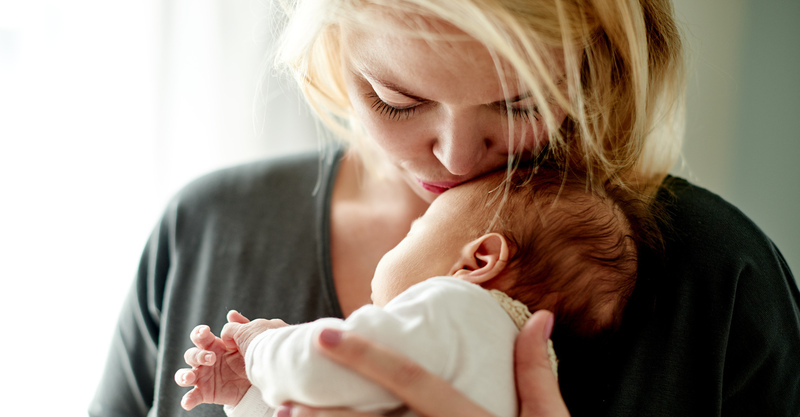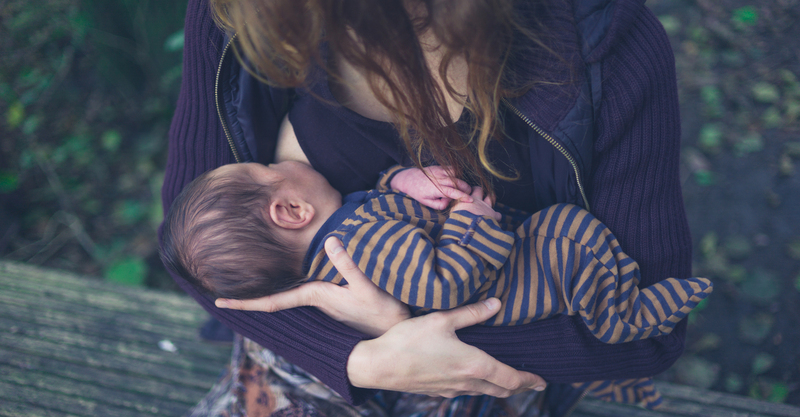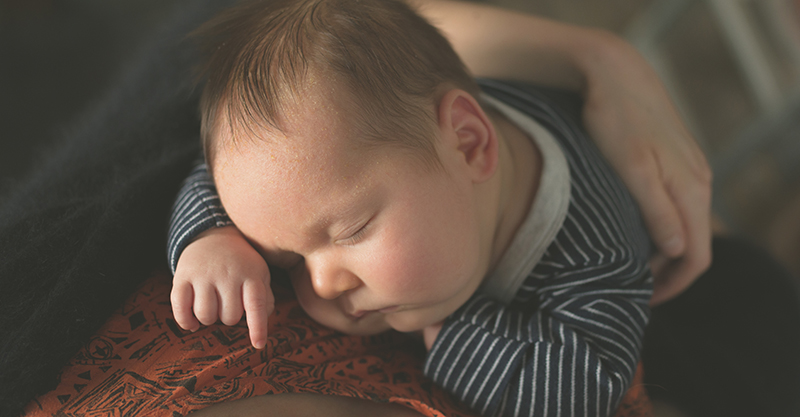7 worries all mums have in their baby’s first year

Once you have a baby, you realise that being pregnant was the easy part. For nine months you didn’t have to worry about bub sleeping, feeding or getting sick, as they were perfectly looked after in utero. Once they’re out though, reality hits! And as happy as it can be, that first year of parenting can be fraught with worries for new mums.
The first thing to know is that you’re not alone – the things you worry about are the same other mums stress over too. The next thing to know is that for every worry, there’s a solution to the problem, or a way of make it easier to deal with.
Here are seven worries we all have during their baby’s first year – and seven realities to ease your concerns:
1. Sleep deprivation
The worry: “My baby is up every night and I’m exhausted. What if she never sleeps through the night?”
The reality: The lack of sleep for new parents is one of the toughest things about having a baby. Especially when you hear about other people’s babies sleeping more than yours, which makes you wonder what you’re doing wrong.
The truth is, all babies sleep differently. Although life is exhausting right now, try to remember you’re an amazing mum for helping your baby get back to sleep each night, and your baby loves you for it. And one day in the near future, she will definitely sleep through the night – both of you will! In fact, there’ll be a time when you forget all about this hazy period of sleep deprivation…
2. Breastfeeding
The worry: “I’m doing my best to breastfeed but I’m finding it so hard!”
The reality: The early weeks of breastfeeding can be challenging as your milk supply is established and you and your baby learn from each other. Sore nipples, concerns about milk supply and the sheer exhaustion of feeding your baby around the clock can really take its toll on new mums.
However, if you can get through the first six to eight weeks of breastfeeding, you’ll notice things become easier. If breastfeeding becomes harder instead, seek out a lactation consultant, who can help you figure out what’s going on. Most breastfeeding problems can be resolved with the right support.

3. Vaccination time
The worry: “I’m dreading taking my baby for her first vaccinations. Won’t they hurt??”
The reality: Your baby’s first vaccinations can be quite traumatic for a mum, as your baby is still so little and those needles look so big! Try to remember that vaccinations are intended to make your baby stronger and more healthy, so it’s a long term gain.
Although it can be hard to witness your baby’s distress, most babies recover quite easily. A breastfeed or close cuddle with you can help with this. You can also consider using a topical anaesthetic on your baby’s skin prior to the vaccinations, such as the Emla patch or cream. Applying this to your baby’s skin about an hour before the injections can help ease the pain – and the whole experience for both of you.
4. Transitioning to solid foods
The worry: “I’m worried about starting solids because they might choke or have a reaction to the food!”
The reality: Starting your baby on solids can be a nerve-wracking time, especially when it comes to lumpy foods. But if you’ve waited the recommended six months and your GP or early childhood nurse has agreed bub’s ready for solids, then you should feel safe in allowing your baby to try their first solid foods.
By starting off slowly with bland, soft food, your baby will enjoy the different food textures and benefit from the extra nutrients solid food can provide. If you’re unsure about what foods to try when, liaise with your early childhood centre for guidance.
5. Baby’s first sickness
The worry: “Seeing my baby sick breaks my heart”
The reality: All babies get sick at some stage, but it can be heartbreaking to watch them snuffle and sneeze and deal with fever. Make sure you see your GP for guidance about how to treat your little one’s sickness, as some medicines aren’t suitable for newborns.
As hard as it can be, try to remember this experience will pass, and your baby will be back to her normal healthy self before long. This might be a time to offer extra cuddles and breastfeeds, as, just like us, babies need extra TLC and nourishment when they’re not well.

6. Going back to work
The worry: “I’m looking forward to returning to work but I feel so guilty about it!”
The reality: Lots of mums feel guilty about missing work, but in reality, this is a very healthy thing to feel, and in no way reflects how much you love your baby.
For many women, returning to work gives them a sense of fulfillment and reminds them of the person they are (besides being a mum). Being able to go to work and enjoy the adult conversations you get to have makes you a healthier mum, which in turn makes you a better mum for your baby.
7. Starting childcare
The worry: “Leaving my child in a new environment makes me feel anxious. What if she hates it?”
The reality: Sure it can be a daunting and emotional time, but childcare can be a positive experience for your baby, who will learn more about their world and socialising with other people.
Most centres are very reassuring for parents who feel nervous about leaving their child for the first time, and are ready to help your child at goodbye time. If you feel worried once you’ve left her there, you can call the centre in half an hour to find out if she’s settled in or still upset. More often than not, your baby will have stopped crying within a few minutes and will be having a great time with their new friends and teachers.
This is a sponsored post for Emla. Emla is used for topical anesthesia of the skin prior to vaccination and blood sampling. Always read the label. Use only as directed.









